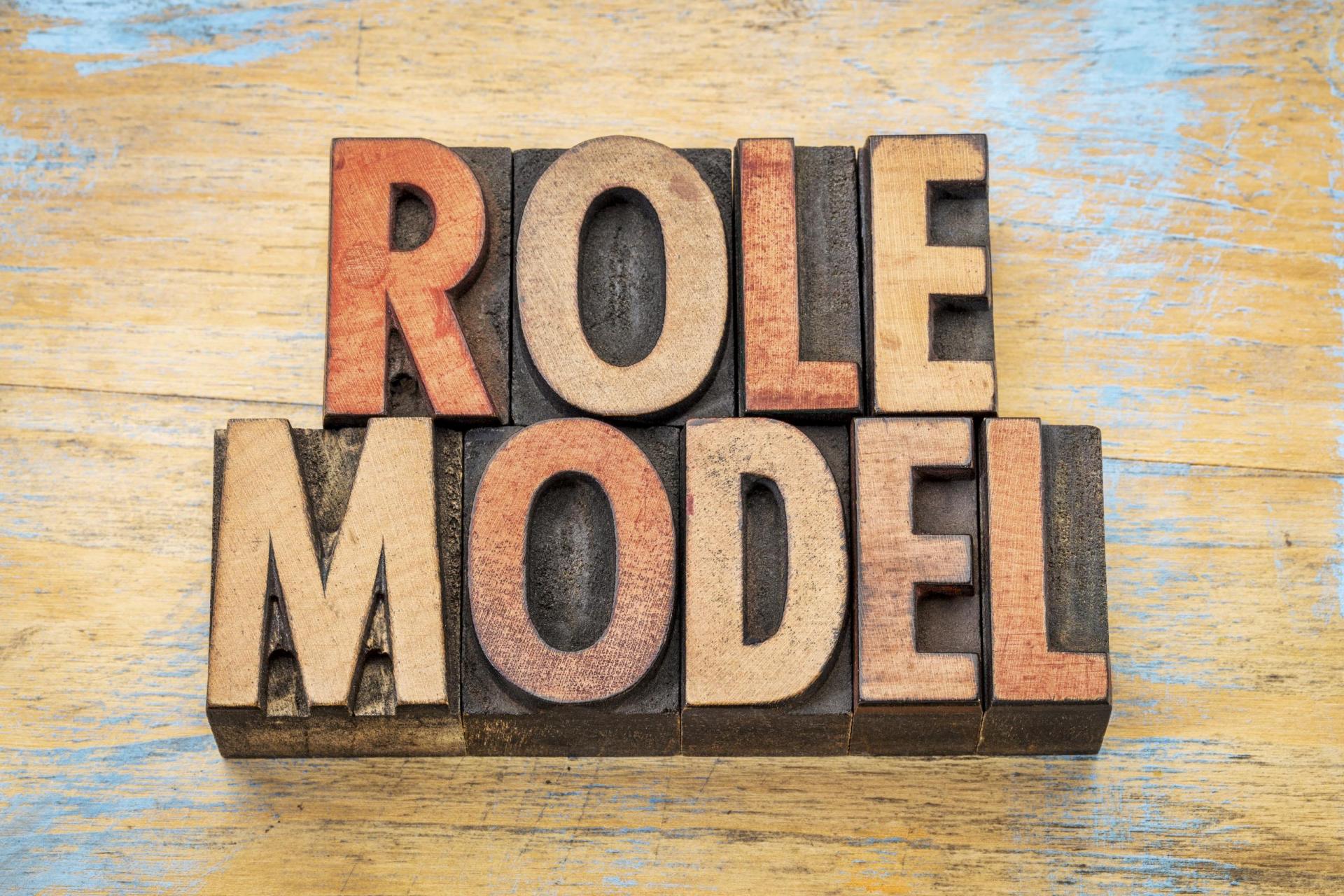Let’s start with a provocative point. In the United States boys who are raised in single parent households are more likely to fall prey to violent crime, drop out of school, end up in gangs and become delinquent. Studies have shown that being apart of the single-parent family unit is one of the foremost indicators of poverty.
When it comes juvenile delinquency and propensity to crime, these problems are no where more apparent than in the African-American community. Where the reality of fatherless homes, and its adverse impacts on the youth all the more evident in the inner cities of America, with the positive correlation with higher rates of crime and violence are most evident in this community.
The lack of a father, of father-figure is a notable factor in reinforcing the propensity on part of juveniles for crimes like homicide and theft (1).
Whilst the argument can be made that there other variables at play, those that could exert varying levels of influence on the outcome: As the problem with juvenile delinquency for example, need not be viewed solely as a function of the lack of a father in the household.
The point is valid. However when one looks at the data, the absence of fathers and by extension the prevalence of a strong family unit, is the most common feature across a spectrum of problems: from the various types of crimes, lower academic performance and later, the future quality of life. Scientifically it is wise to deal with variables that are common across the board when it comes to these social ills.
And that common feature is, not simply the absence of a father (for it could also be a stepfather or foster parent). Rather it is the problem of the lack of role models.
A problem that is particularly acute when it comes to the development of boys and adolescents: The would-be men who are raised in homes that are not only missing a father figure, but are critically lacking a person who can serve as an example, someone to look up to. For the adverse effects that result from the lack of a role model, go beyond the person's propensity for crime and weak academic performance.
Whilst these are things that often make the news and generate the skewed numbers statistically; the more pervasive problem resulting from the lack of role models is one that is often ignored. It is one that pertains to the status of men in the modern world, where the reality of failure is a more subtle but serious one. One that extends into other areas of life, like financial independence, having meaningful relationships, and being able to reach one’s fullest potential.
Why Boys Need Role Models

If this intro had not been politically incorrect enough already, it certainly is now.
When one thinks of major social indicators like drug use, violent crime, petty felonies, dropping out of school, and a host of other social malpractices that involves law enforcement and social services-all of which come with a huge cost to the taxpayer-the demographic that is at the forefront is male. Overwhelmingly male!
Most social ills, if one is to take a country like the United States as an example, though in practice this would apply to any Western nation, primarily revolves around men (2). (The situation in developing countries is a different matter, but the core nature of the problem as it relates to men, remains).
Once again before we could swayed by the ‘look at bigger picture’ argument. Whilst policy making and governance exert an impact, what is indisputable is that almost societal problems in developed economies of the West tend to originate from the personal decisions made by the males of our species. The question is why?
When one delves into the subject it becomes apparent that serious matters such as crime, propensity for violence and other forms of criminality are often downstream effects that result from deeper, older developmental problems that young man face in the formative years of their lives. And speaking of the petty juvenile criminals, it pertains to the lack of leadership at that point in their lives.
So what is needed is the moderating and calming influence of role models. Men who have been there and done that, and who can guide young men through testing periods of their lives. Either in the social contexts in which the problems take place, or by providing the kind of moral and intellectual leadership that prepares men (of whatever age) to be ready to face the challenges when they arise.
So when faced with moments where the loss of self-control, an instinctive reaction, or the absence of willpower are real, they have the benefit of the guidance they have received, which could prove to be difference in preventing them from making a fatal or deleterious decision.
A Leadership Question

The life of many men is overwhelmed by ‘what ifs’. What if I had known better? What if I had done things differently? What if I had someone who could have pointed me in a different direction? What if..?
For countless men in the modern world-of whatever age group or demographic-had they had the right kind of leadership, either during that moment in their life or in the past, things could have turned out differently in the present.
Whilst it is impossible to control for the countless factors that determine human behavior, the presence of a guiding hand or system of guidance could be the difference between life and death, pain or gain, and what is often overlooked in this discussion on men in the modern world: the difference between success and failure.
The crux of the argument is that the many problems that boys and men would face in life could, not exactly be solved or avoided, but at least greatly mitigated in terms of their adverse affects, and potentially be used as a platform for growth and advancement, if for the presence of fathers, or better, father figures.
More specifically, speaking about the development of masculine men, we are talking about the need for experienced male roles models.
When it comes to men, the many failures we encounter in the world: the delinquent, the homeless and yes even the sick, and disabled; many of their problems (besides those which are inherited) are fundamentally a problem of leadership.
One very bad decision could cost you greatly. But many small bad decisions, collectively, made over the course of years or decades could end up having the same effect: from drug use, alcohol addition, physical aggression, and falling victim to crime, or be the perpetrators of crime.
When speaking of the many adolescent boys and young adult men who are unable to get through academic, relational and later professional hurdles that life throws at them, to be able to get to a stage where they could function as average, law abiding citizens; what we are talking about is a serious, society-wide problem.
Hundreds of thousands of if not millions of men who fail to reach their fullest potential. Here one could be tempted to call it a disease.
The problem with failed men and boys is a systemic one. And it becomes more acute when one considers the cost of lost potential. The problem of the countless men who have failed to reach their fullest potential: The men who are left to settle for leading mediocre, predictable lives; where their true capabilities are lost to the world and to themselves.
Men who have a lot of energy inside them no matter the age; but owing to bad choices, bad luck, and a lack of initiative and guidance are left to waste away in dead-end jobs.
The countless men who are “content” to drone away inside a cubicle without having the will or the know-how on how to escape their ordeal. In this state of affairs, the need for healthy male role models for boys and men, at virtually any stage of their lives, becomes all the more important.
With respect to the earlier subheading, the reference to “boys” is not only limited to persons who fall within a certain age range (i.e. minors).
The world is such that there are many “men” walking around, who may be adults in a legal and physiological sense, but in fact are far from being the kind of men they wish to be. And for a whole lot of other men out there, the very idea of what it means to be a man in the modern world is one that is alien to them.
The men who ought not to be content with a job, house and wife (or husband); but seek out new possibilities, test their limits by connecting with their inner core and live as as true masculine men.
The Need for ‘Male Spaces’

Did you know that in OECD countries (which is list of top 38 developed countries across the world, including the United States) women represented 97 per cent of the teaching staff at pre-primary level, an astounding 83 per cent at primary level, and then go onto make up around 60 at upper secondary level (3).
Considering the fact that a lot of boys in the West grow up in single parent households (i.e. usually only the mother) and in the majority of other homes, fathers tend to play a marginal role. Thus the lack of male teachers and by extension leaders who can literally lead by example is often missing.
If one considers the present social climate of the West, in terms of its outlook and trajectory: Where in addition to the growing influence of gender ideology on society, increasingly a lot of what was historically considered male-only spaces are being, for the lack of a better word, feminized (or taken over).
The controversial decision taken by the Boy Scouts of America to admit girls in 2017 (despite around a third of the US population opposing the decision) is one such example (4).
The problem is not about giving girls an equal footing or a platform for representation (there already is a Girls Scout of the USA), but rather the concern lies with the capacity of these organizations to cater to the unique developmental needs of males. That is of course if you believe such is a thing is real, and worth pursuing.
Taken together a lot of boys in the West today, depending on their level of engagement in co-curricular and extra-curricular actives, develop in a world where the presence of healthy male role models: teachers, guides, mentors, spiritual advisor and coaches is often limited or non-existent. Further compounding the problem is the character of these environments.
Speaking of girls being allowed into the boy scouts. There is no easy way to put this, but if you take a competitive environment catered towards adolescent males who are made to battle it out via trial and error to succeed at a skill game, aptitudes or anything else. But then some thinks its a great idea to throw in a bunch of girls the same age, and pursue the same outcomes?
In such a scenario, you will invariably find that things will begin to change. The approach towards the students or competitors may start to differ, new the variables will be introduced to accommodate the females, and sometimes even the governing rules will be altered to make things “fairer” for all parties.
The consequence often being that the males will come out on the loosing side. Kind a like forced diversity in television!
But seriously, the key argument that we are making is that for boys to develop into competent, tough masculine men, they need to have a space of their own. Guided by male role models, or better, leaders of men.
Learning by Example

Learning and leadership go together. Take any good teacher and you are bound to find a good leader. Either an overt one in an official capacity, or a man who has the ability to inspire and motivate. Learning anything that is worthwhile is not going to come easy.
However herein lies the challenge. In the world today, there isn't an abundance of leaders.
Specifically the leaders of men who can teach, lead, motivate and inspire in a way that resonates with a certain but large segment of the male populace.
The type who constitute a considerable portion, if not the majority from time to time, who are not always willing to play by the rules, stay the course, adhere to protocols. Who by doing so risk incurring the anger, and the inevitable consequences for disobedience.
And when we are talking about young, energetic adolescents filled with testosterone, whose young minds are characterized by a rebellious spirit; from the standpoint of a teacher, knowing the ropes and having the right qualifications is often not enough. Not for a lot of guys.
This problem with the lack of leadership in education, which speaking of the formative years of a guy’s life is compounded as males in this period are faced with another pressing problem that we noted earlier: the of the lack of male teachers during this key period in their lives.
The example of education, with respect to the established public and private academic systems, which function as the primary framework for the development of boys. One of the problems we have with these systems is their singular focus on academic performance, or sports excellence. Where there is an established system of rules and criteria that measures success. This is necessary.
However from the standpoint of the adolescent boys, the part that is often ignored, one that underpins this entire process or journey of learning and growth, is that of mindset.
Knowing what needs to be done and how to do it, forms only one part of the equation. Simply providing written guidance or other teaching protocols are often not enough to get through to many young men. And even when conventional means of guidance works, these often do not go far enough.
Thus the answer lies in having a framework that allows competent leaders, who have been there and done that to have an active role. Strong, masculine men who can work with adolescents, and later adults, in engaging the desires, ambition and goals of those who they are called to lead.
The kind of leaders who are able to bridge the gap between rules, academic and professional expectations and the underlying psychology of the individual. With the key mesh being provided by experienced men, who have proven success in the specific or related sphere.
Finding the Right Role Models
Learning by example, a conducive environment for growth, developing the right mindset!
Unless you got a really good roll of the dice in life; or you have had an expertly tailored academic background, with a good participation in sports; then this framework of development is not likely to be prevalent feature in the lives of many men.
In much this discussion we have focused on the importance of role models and leadership during the formative years of a man’s life: which pertains to his youth and childhood.
But what happens if you are past it? What happens if you are a guy who is now in his late 20s, 30s, heck even the 40s and beyond? What’s gonna happen to you?
The answer is comes down to what you want. What you Really want out of your life? No matter where you are, or at what stage.
Think here of the words of the Roman Emperor Marcus Aurelius: “Let men see, let them know, a real man, who lives as he was meant to live.”
Ask yourself: Are you living your life as you really want it to be?
If you aim in life is to see change. Positive, constructive change where you see real improvement when it comes an important key areas like fitness, finance, relationships, and I am not just talking about your dating life (important as it is), but how you deal with your family, co-workers, your boss and employees if you have them, then it might be time to take action.
Each and every one of these relationships has a mindset question. How you interact with them, how you deal with conflict, how you find answers to life’s pressing questions. When you should seek real help. In each of these instances a life coach, a role model, or in a word a leader who can work with you, help you, and guide you would indispensable.
And if you want to see changes in real time, with measurable results then it might be the time to seek out a role model, or in modern terms: a life coach.
Are You Ready to See Real Change
When seeking a role model or a community in which you are able to learn and grow in the presence of men who wish to improve themselves then you can start by asking the following questions:
One: Do you Have a problem or hurdle that needs solving. One that has been around for some time?
Two: Do you Need answers to questions to issues in your life, questions that you were not comfortable to ask until now?
Three: Do you Want to see real change in your life: In your income level, relationships, discipline?
Four: Do you Wish to become the best version of yourself: We have heard this before, but do you really know how to make it happen?
Conclusion
Life is a journey filled with trials and obstacles. And when it comes to you meeting your goals and succeeding there is no shortcut. You have to put in the work. You have heard it before: don’t work hard, but work smart. Well, the Stoic response to life is to work hard and smart. In the journey towards accomplishing anything significant you need to make the hard choices, but do it with guidance of a leader. A real role model with proven success is better.
References
- Heritage (1995), The Real Root Causes of Violent Crime: The Breakdown of Marriage, Family, and Community. [ONLINE] Available at: https://www.heritage.org/crime-and-justice/report/the-real-root-causes-violent-crime-the-breakdown-marriage-family-and#:~:text=State%2Dby%2Dstate%20analysis%20by,of%20families%20abandoned%20by%20fathers. [Accessed: 05-21-2022].
- The Conversation, (2021), Men are more likely to commit violent crimes. Why is this so and how do we change it? [ONLINE] Available at: https://theconversation.com/men-are-more-likely-to-commit-violent-crimes-why-is-this-so-and-how-do-we-change-it-157331. [Accessed: 05-21-2022].
- OECD, (2019), Education at a Glance 2019: OECD Indicators, [ONLINE] Available at: https://www.oecd-ilibrary.org/sites/145d9f68-en/index.html?itemId=/content/component/145d9f68-en [Accessed 05-21-2022].
- NBC News, (2017), Majority Opposes Boy Scouts Decision Allowing Girls to Join, [ONLINE] Available at: https://www.nbcnews.com/politics/first-read/majority-opposes-boy-scouts-decision-allowing-girls-join-n815691 [Accessed 05-21-2022].


1 Comment